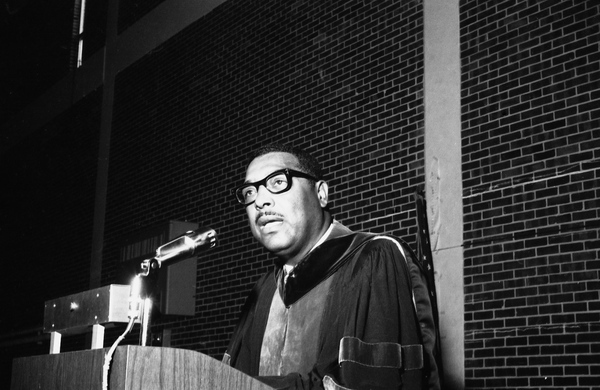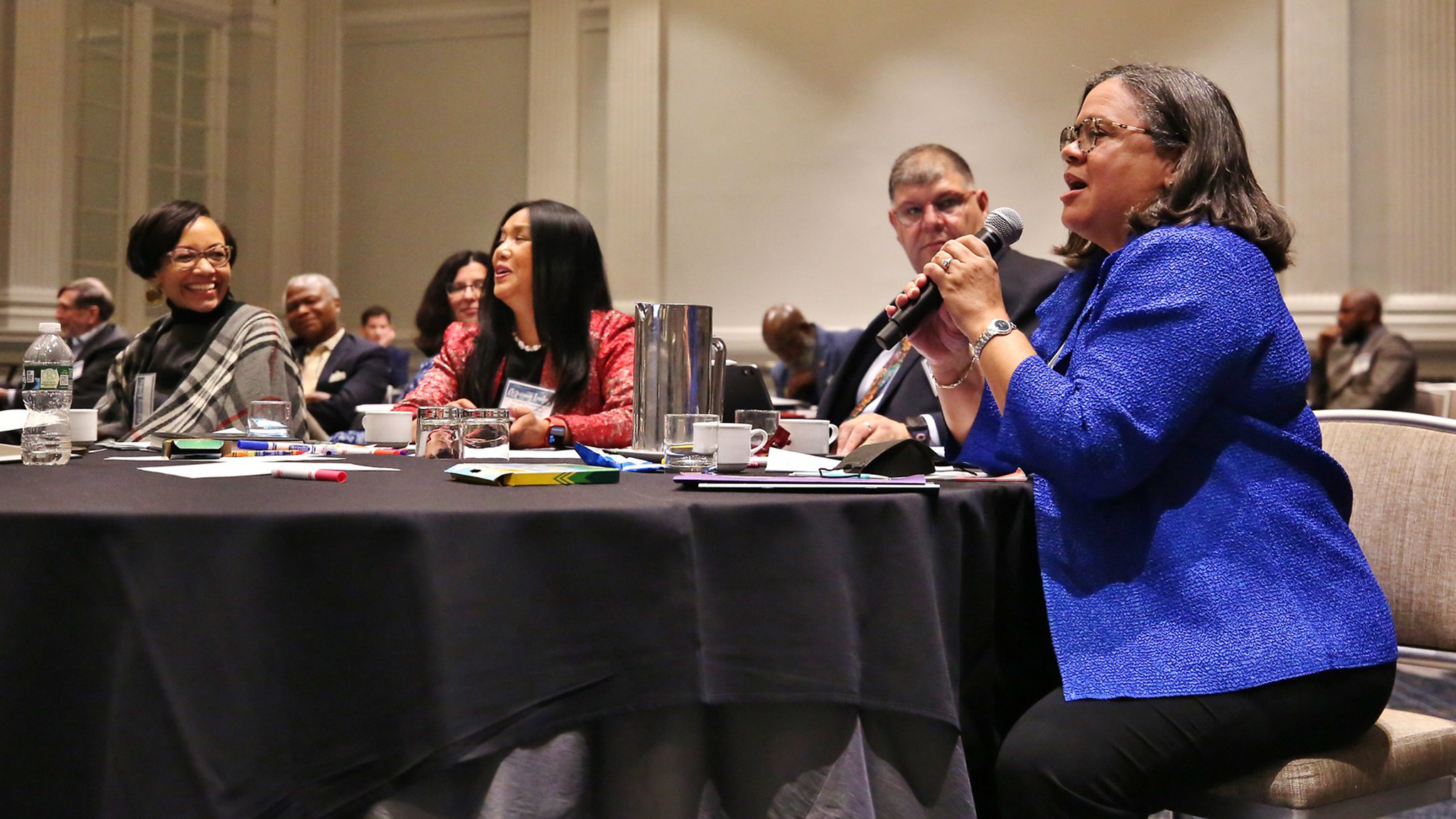About Samuel DeWitt Proctor

Samuel DeWitt Proctor was born and raised in Norfolk, VA to parents, Herbert Proctor and Velma Hughes. Following his high school graduation, Proctor enrolled at Virginia State College (now Virginia State University) pursuing a degree in music with the help of a musical scholarship for his extraordinary saxophone skills. Proctor left Virginia State College in 1939, and enrolled in the U.S. Naval Apprentice School to receive shipfitting training, leaving only after a year of being enrolled. Following his departure from the Naval School, Proctor enrolled and graduated from Virginia Union University in 1942. He then went on to the University of Pennsylvania where he studied for a year before enrolling as the only Black student at the Crozer Theological Seminary studying Christian ministry. Following his graduation from Crozer, Proctor became a pastor in Providence, Rhode Island and also accepted The John Price Crozer Fellowship to study ethics at Yale University. He balanced both being a pastor in Providence and also a Fellow at Yale before leaving to pursue a Ph.D. at the Boston University School of Theology.
In 1950, he was invited to give a lecture at the Crozer Theological Seminary where he met Martin Luther King Jr. who later became his colleague and close friend. After graduating from Boston University, Proctor returned to his alma mater, Virginia Union University, where he accepted a position as Dean. Shortly after being Dean, he was promoted to Vice President, and eventually President of Virginia Union University. As President, Proctor engaged in several Civil Rights initiatives and even led a lecture series amidst the Montgomery Bus Boycott. He was also one of a few Black leaders who were invited to the White House by President Dwight D. Eisenhower in the wake of Brown v. Board of Education and encouraged to minimize their demands for civil rights for African Americans. Proctor refused. The rest of his presidency was filled with international speaking engagements and conferences in Africa and the Soviet Union. Proctor left Virginia Union in 1960 and became president of historically Black college Agricultural and Technical College of North Carolina (now North Carolina A&T University). As President of A&T of North Carolina, Proctor supported students who were arrested for protests and helped students navigate legal woes; he also took a leave of absence to serve as associate director of a Peace Corps chapter in Africa, he temporarily relocated in Nigeria. Upon his return to the United States, Proctor continued his presidency for seven months before announcing his resignation in 1964. Following his time in North Carolina, Proctor served as the president for the National Council of Churches, president for the Institute for Service to Education, special adviser for the Office of Economic Opportunity, and published a book titled, A Young Negro in America 1960-1980 on the challenges of young African Americans.
In 1969, Proctor was invited to speak on the one-year anniversary of MLK’s assassination. So impressed by the event, Rutgers administrators offered Proctor an appointment as the newly established Martin Luther King Distinguished Professor of Education. Proctor was on the faculty of the Rutgers Graduate School of Education for 15 years and was a Visiting Scholar in the Department of Africana Studies in the School of Arts and Sciences. He was the first African-American faculty member at both the school and university to have an endowed professorship named for him. During his tenure, Proctor recruited generations of students of color to Rutgers University, and mentored many as they went on to pursue graduate degrees.

